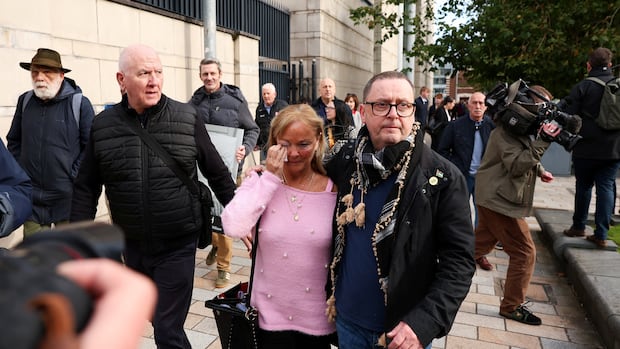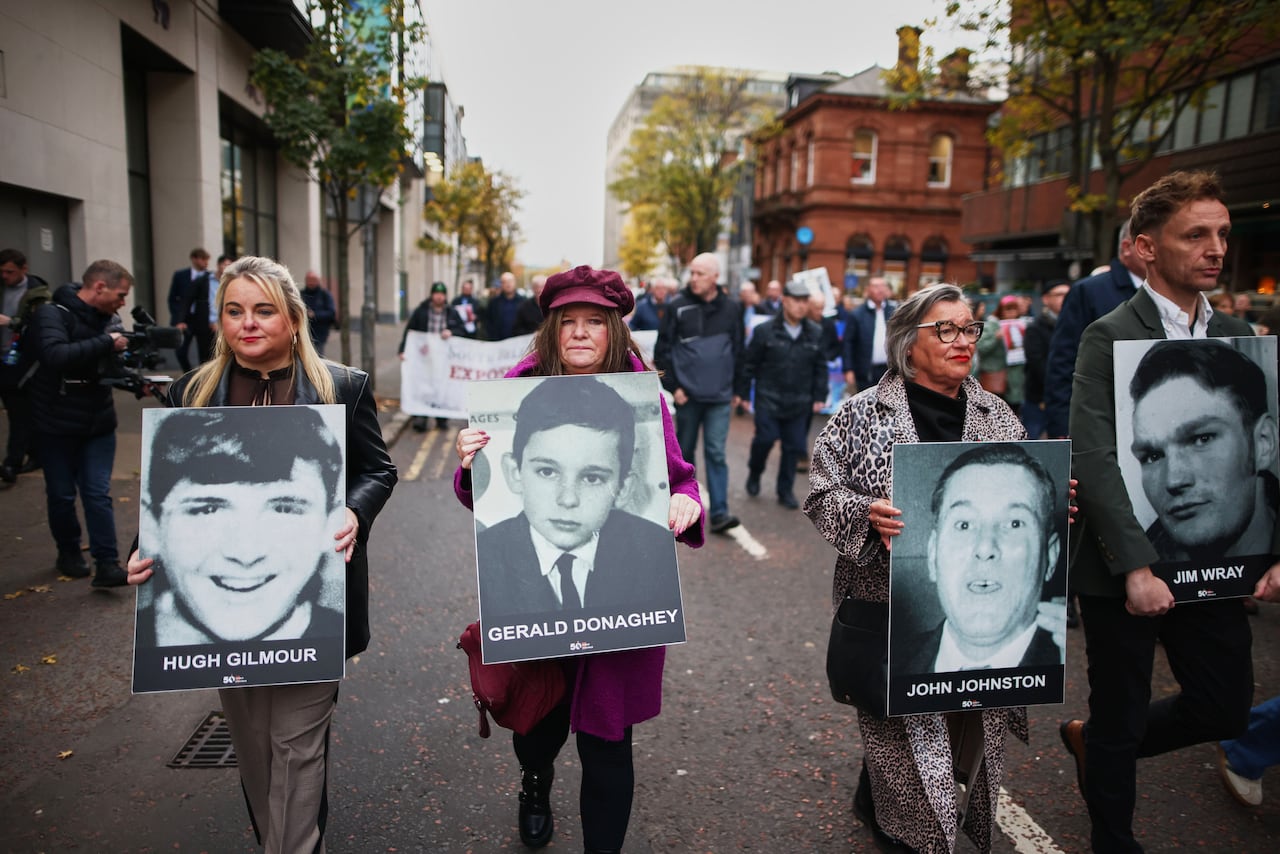British soldier found guilty of murder, tried for murder in 1972 massacre in Northern Ireland

[ad_1]
A former paratrooper in Britain who was the only soldier to be charged with the massacre in northern Ireland was found guilty of murder on Thursday.
Judge Patrick Lynch issued a decision in the Belfast court that the prosecutors failed to prove that the soldier who was identified as a soldier was only the soldier who opened fire.
In the judge’s opinion alone, Lynch said the evidence presented against the veteran fell well short of what is required of conviction.
The decision, which shows the weak evidence the campaigners have to rely on, is a blow to the families of the victims who have spent more than half the time seeking justice.
The former Lance Corporal was charged with two counts of murder and five counts of attempted murder. Prosecutors say he shot fleeing protesters on Janu 20, 1972 in Londonderry, also known as Derry, where 13 people were injured and 15 others were injured in a fatal shooting.
Thirteen people were killed and 15 injured in an event that has seen clashes between supporters of United Ireland and Protestant forces who wanted to stay in part of the United Kingdom.
While the violence largely ended with the 1998 Good Friday Accord, conflicts remain. The families of the slain civilians continue to press for justice, while supporters of the army’s military complain that their losses are being cheapened and misrepresented in the investigation.
Soldiers have lost ‘all sense of military morality’: Judge
Soldier F had pleaded guilty to two counts of manslaughter in the deaths of James Wray, 22, and William McKinney, Michael Quinn, and Patrick O’donnell, and opening fire on unclean fish.
It was requested to look at the court through the curtain, he did not testify in his defense and that his lawyer did not testify. The soldier told police during a 2016 interview that he had no “reliable recollection” of the events that day but was convinced that he had discharged his duties as a soldier.
While the judge condemned Soldier F for the charges, he said that the soldiers who appeared in the parachute event at work that day “lost all sense of military discipline.”
“Shooting in the back of unarmed civilians fleeing the streets of a British city,” he said. “Those responsible should hang their heads in shame.”
But because there was no concept of ‘joint guilt’ in the courts, he said he could not issue a guilty verdict.
The main witness is no longer alive
Defense attorney Mark Mulholland attacks the prosecution’s case as “basic and weak” for relying on so-called soldiers who think they have been decorated with some rubber bullet mistake.
Surviving witnesses spoke of confusion, chaos and fear as soldiers opened fire and bodies began to fall behind civil rights houses.

The prosecution relied on the statements of two junior soldiers – soldier g, now dead, and soldier H, who refused to testify. The defense successfully tried to exclude the hearsay statements because they could not be cross-examined.
“Their statements, some bare testimony, cannot be tested in the way that the Witnesses give evidence from the witness box that they would be,” said the judge. “The delay to him, in my view, has seriously impaired the defense’s ability to test the veracity and accuracy of the hearsay statements.”
Prosecutor Louis argued that the soldiers, without justification, all opened fire, intending to kill and therefore share responsibility for the casualties.
Day 610:43There is NOTHING that looks at difficult questions when playing during a crisis
After reading the Obituary of 2013 IRA Member Dolours Price, writer Patrick Radden Keefe began researching and writing his book Unspeakable, A true crime story set during the Troubles in Northerland Ireland. His book is now an FX series to air.
The killing of these was a shame for the British government who had initially said that the members of the parachute resumer were fired in self-defense after being attacked by petrol bombs.
A systematic inquiry cleared the forces of responsibility, but a subsequent review and formulation in 2010 found gun-free civilians fleeing and beginning a decades-long cover-up.
SIVIVE DAVID Cameron apologized and said the killing was “unbelievable and unpleasant.”
The 2010 discovery cleared the way for the prosecution of Soldier F, although delays and obstacles kept it from going to trial until last month.




